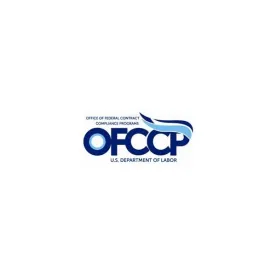On June 24, 2020, a Department of Labor Administrative Law Judge (ALJ) denied J.P. Morgan Chase & Co.’s motion for summary judgment seeking to dismiss an OFCCP enforcement action. The ALJ’s decision was preliminary in nature, but contains important guidance on the temporal scope of OFCCP’s compliance reviews and the agency’s ability to prosecute alleged pay discrimination that allegedly occurred years after the two-year compliance review period.
The enforcement action arose from a 2012 compliance evaluation into J.P. Morgan’s Investment Banking, Technology, and Market Strategies functional affirmative action program (FAAP). J.P. Morgan provided OFCCP with compensation data based on a 2012 snapshot of the FAAP’s employees, as well as a data file listing compensation changes during the two-year review period preceding the snapshot. J.P. Morgan refused to provide post-2012 compensation data in response to OFCCP’s request. J.P. Morgan contended that it disbanded the FAAP at issue in 2012 in a corporate reorganization, with the FAAP’s employees dispersed into 18 different business units and their corresponding FAAPs. In 2017, without receiving additional post-2012 data, OFCCP issued a Notice of Violation and filed an Administrative Complaint asserting that J.P. Morgan discriminated against female employees in the FAAP from 2012 and that the discrimination “continues to the present.”
J.P. Morgan challenged OFCCP’s post-2012 findings based on the agency’s failure to reasonably investigate the impact of the reorganization or use available mechanisms to obtain the post-2012 data J.P. Morgan had refused to provide. J.P. Morgan also argued that OFCCP’s regulations limit a contractor’s liability in an OFCCP evaluation to the two-year period preceding the start of the evaluation. Although the ALJ agreed with prior decisions holding that OFCCP may prosecute violations that begin in the review period and continue unremedied into the future, he expressed concern about the scope of OFCCP’s open-ended discrimination findings. The ALJ noted that contractors have a due process right to fair notice of OFCCP’s claims against them, and an enforcement action with no established end-date to the violation period infringed due process. He also explained that J.P. Morgan’s corporate reorganization could impact OFCCP’s ability to pursue alleged violations occurring after the reorganization. Because OFCCP had not sought discovery about the reorganization and elimination of the FAAP, however, the ALJ declined to issue a firm decision.
This decision continues an ongoing trend of ALJ rulings permitting OFCCP to seek and rely upon alleged evidence of discrimination outside of the review period. Because OFCCP can take years to complete complex audits, a contractor’s potential post-review period liability can extend longer than its liability for the actual review period. Although this evidence should only have possible relevance if OFCCP first (and independently) establishes a violation during the period under review, OFCCP frequently seeks to use post-review evidence to bolster its evidence for the review period. Contractors should carefully consider events like reorganizations or changes to their compensation structures that cut off continuing violation allegations and limit the contractor’s potential liability.





 />i
/>i

